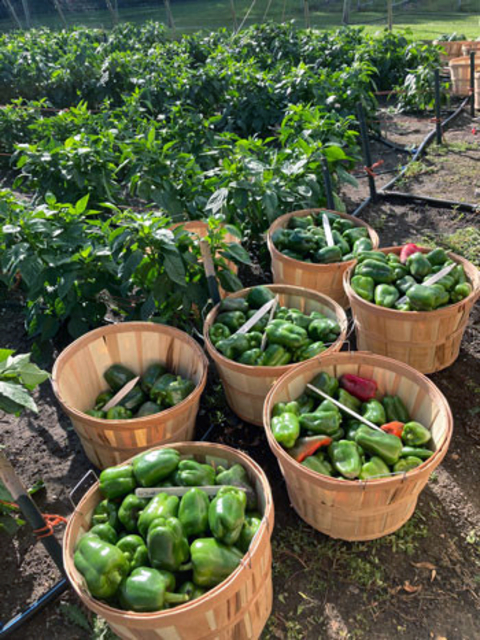The West Central Research and Outreach Center in Morris, Minn. took a look at four common bell pepper varieties and compared them against each other to determine which, if any, variety would have the best production for the home gardener.
The contenders
We planted Ace, Archimedes, Currier and Lady Bell. These varieties were chosen because of their differences in being resistant to Phytophthora root rot and bacterial leaf spot diseases. Ace and Lady Bell are not resistant while Archimedes and Currier are.
The plants were grown in the soil, not containers, and the data we collected was based on the four harvests we had over the growing season.
Size or quantity?
In terms of marketable yield in pounds, over the whole season, each variety produced about the same amount.
- Ace produced little during the beginning and middle of the growing season but then began producing heavily late in the season.
- Lady Bell started off slow, peaked mid-season and then dropped off again.
- Archimedes and Currier produced at a fairly steady rate all season long.
This indicates that these resistant varieties have more uniform yields than non-resistant varieties.
The number of peppers produced showed some big differences.
- Archimedes and Currier produced similar amounts.
- Lady Bell produced about a third more.
- Ace had the highest production with about two thirds more than Archimedes and Currier.
Since they all had similar yields, this means that Ace produced more but smaller peppers, Archimedes and Currier produced the least but the largest peppers and Lady Bell was in the middle.
Recommendations
- Archimedes and Currier are our recommendation for steady, season long production of large peppers.
- If quantity is more important to you than the size of the fruit or the steady production, then Ace would be a good option for your garden.
- And if you’re looking for a medium sized pepper with a peak production during mid-season, Lady Bell will work well for you.
But no matter what variety you choose, it looks like a disease resistant variety will produce larger peppers at a steady pace.


